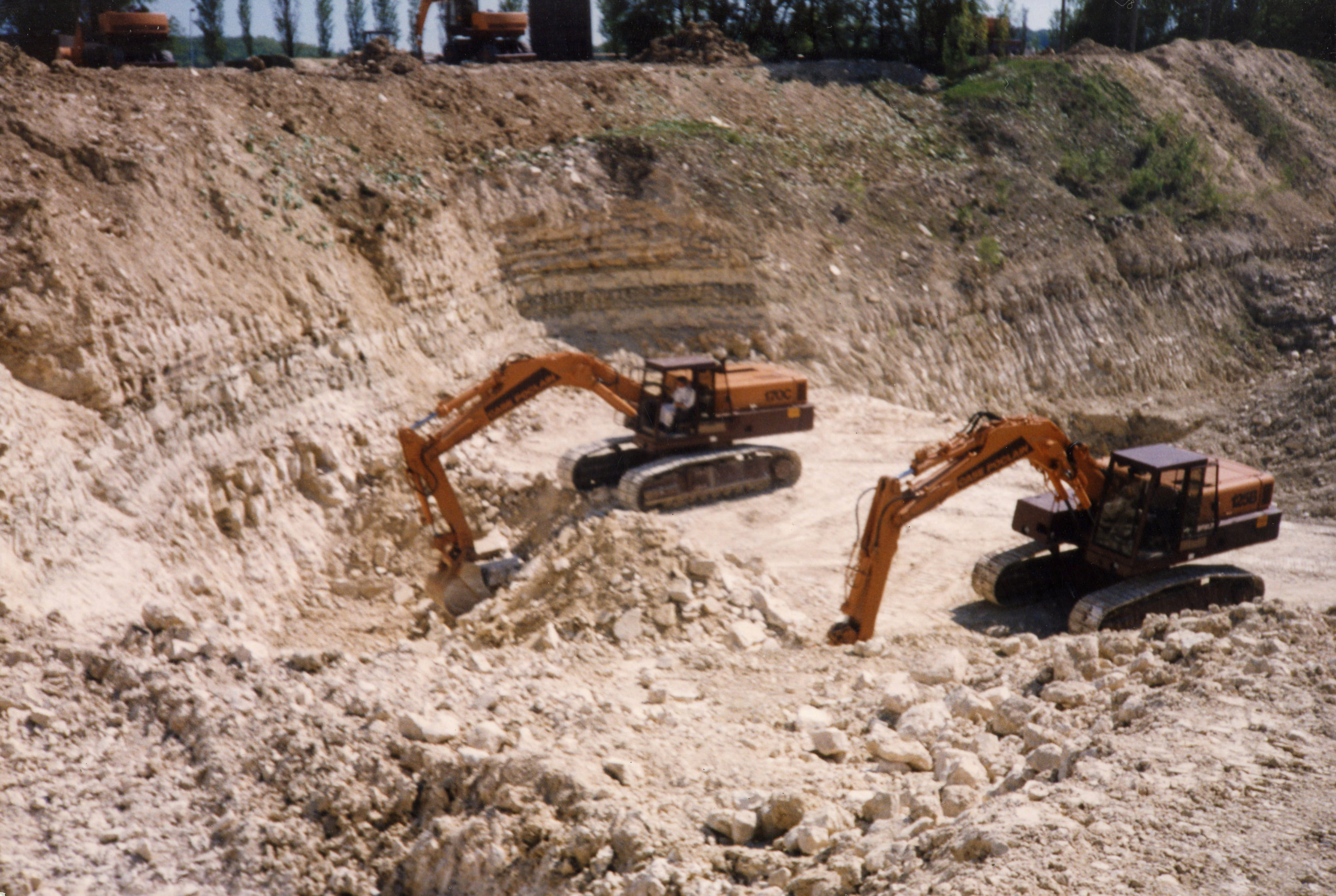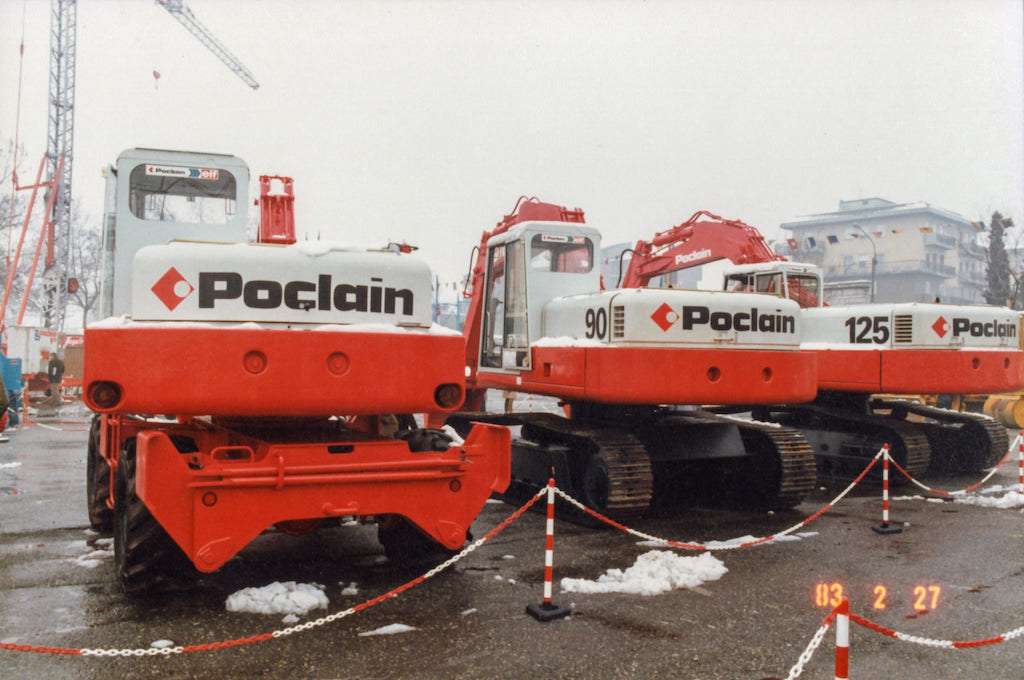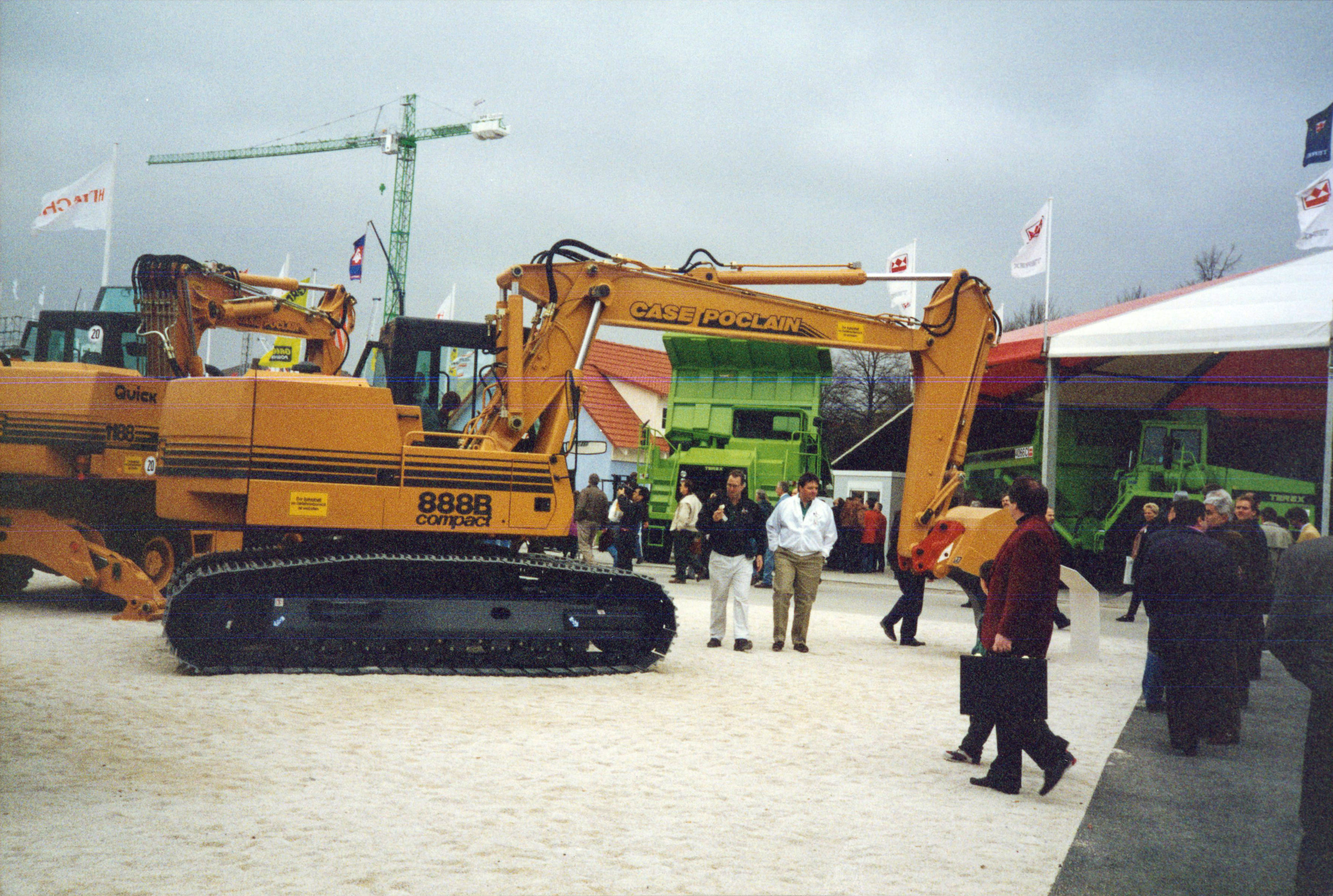The world of construction equipment includes names that have made their mark, and prominent among them is CASE Poclain, the result of the fusion of the French innovative tradition of Poclain and the American industrial might of CASE. A brand that revolutionized the industry through its pioneering inventions, such as the first fully hydraulic excavator, and that continues to inspire nostalgia and respect among enthusiasts and industry professionals.
The story of Poclain: red French nostalgia
The Poclain company was founded in 1927 in Verberie, a town in the Oise region of France. The founder, Georges Bataille (not to be confused with the philosopher of the same name!), was initially dedicated to plumbing, but in the 1940s he embarked on a path destined to change the history of construction. Bataille had the insight to develop the first fully hydraulic excavator, a revolutionary technology that overcame the limitations of the old winch excavators.
Innovations that marked an era
Poclain's advanced technical solutions were accompanied by other groundbreaking devices:
- Ergonomic cabs with elastically suspended seats and adjustable manipulators.
- Travel pedals designed to improve operator comfort.
- The innovative Variodyn system, forerunner of modern variable displacement pumps, which offered exceptional performance to the excavator boom.
These elements, combined with the distinctive ruby red color of Poclain machines, made these excavators a symbol of France's postwar construction boom. From the windy cliffs of Brittany to the coasts of Provence, it was impossible to travel around France without coming across at least one Poclain at work.
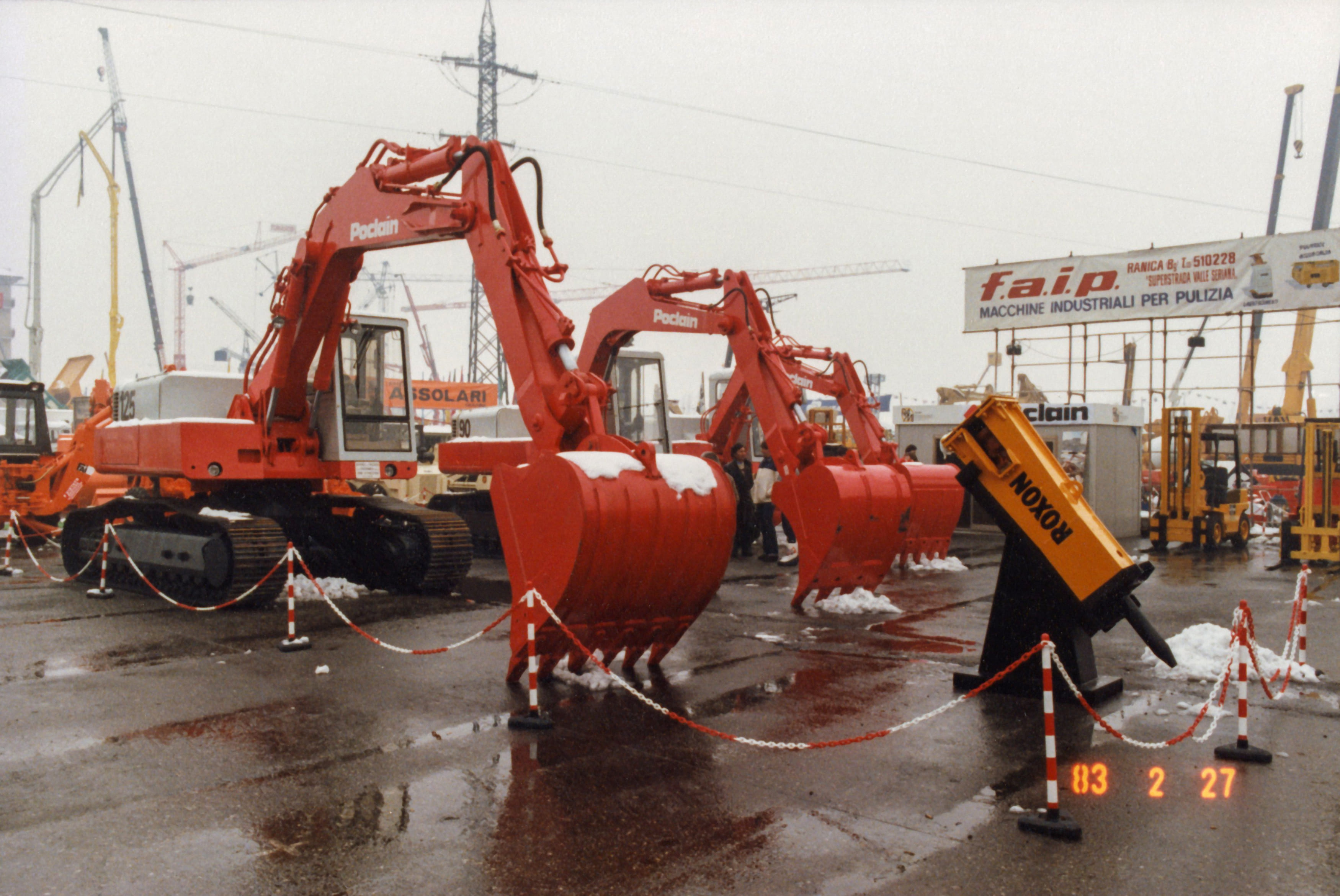
International growth and the merger with CASE
For a construction company in the 1960s, having a Poclain excavator was synonymous with excellence and modernity. The prestige led the company to expand rapidly beyond French borders, conquering the European and international markets. However, in the 1980s, the brand faced significant change.
Acquisition by CASE
In 1974, Poclain's excavator division was acquired by CASE, a famous American brand. From that time, machines began to be manufactured under the CASE Poclain name, gradually transitioning from red to CASE's signature yellow color. This transition marked the beginning of the merger between two great traditions, but also the gradual oblivion of the glorious Poclain brand.
The parent company, meanwhile, would devote itself exclusively to hydraulics, abandoning the field of construction equipment.
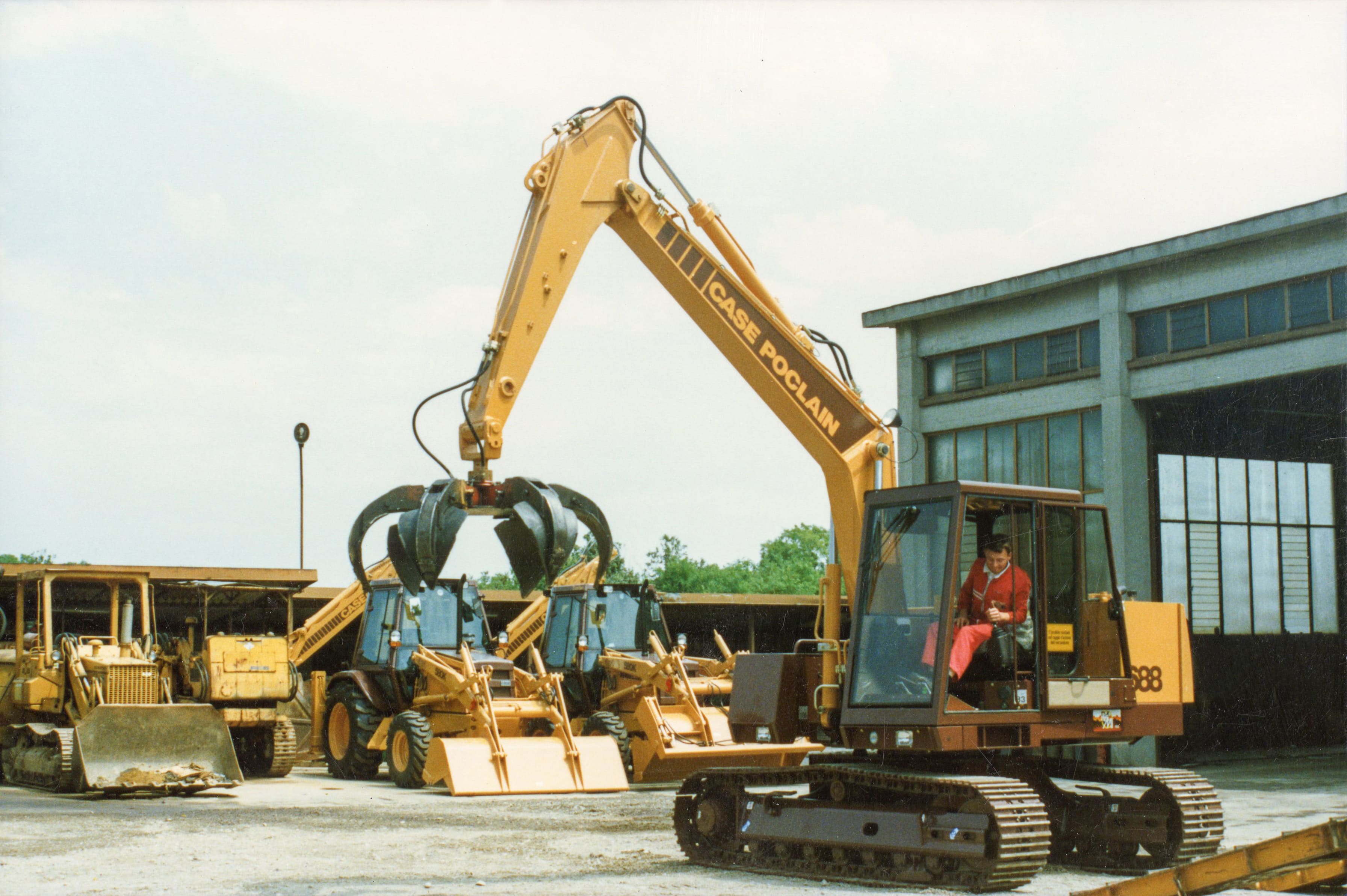
The survivors: the historic models of Poclain
Despite the brand's decline, Poclain models continue to be loved by enthusiasts and are still featured in exhibitions and displays. The Generation Deux association, founded in 1989 by former Poclain employees, proudly preserves some iconic models, including:
- 81P (1986-1989): a wheeled excavator with a front loader, red of course.
- C11: a track loader with hydrostatic drive that was very advanced for the time, produced in the early 1970s.
- 35 CK: a mini-excavator from the early 1980s, created as a compact version of the larger excavators.
- TY45: a wheeled excavator with a very distinctive design vaguely reminiscent of a Piaggio Ape combined with a mechanical boom. It was a best seller at the time of its release (1975).
Poclain today: still in action?
Finding a French-made Poclain excavator today is not easy, but neither is it impossible.
Let's make an estimate:
- Average lifespan of a well-maintained excavator: about 15,000 working hours.
- Annual work-hours: if we consider an average of 8 hours per day of use, excluding vacations and vacations, these hours translate into an operating life of about 10 years.
- Actual use: machines rarely operate at full capacity every day. Construction sites often alternate the use of different machines. So we can extend the operating life to 15-20 years.
- Downtime: many machines sit in storage for long periods without being used. This can be due to market fluctuations, company closures, or rotation of equipment within the fleet. These periods of inactivity can add years to their total life.
- Restoration and reuse: very old equipment can be refurbished and become productive again, albeit with limited performance. A significant market for these kinds of machines is freelancers and specialized companies that operate between Europe and the United States looking for decommissioned machines on construction sites to repair and resell them in developing countries.
Bearing in mind that the last “French-style” Poclain excavator models date back to the early 1990s, it is not impossible to find a few operational examples tucked away in construction sites around the world, a testament to the quality and durability that have made this brand famous.
As for Poclain CASEs, however, the odds are much higher. Being newer models, it is not uncommon to find them in operation just about everywhere, even in Western Europe.
Poclain and CASE Poclain spare parts: do they still exist?
Finding spare parts for historic Poclain models can be quite a challenge. With the brand's transition to CASE and then CNH Industrial, production of original parts ceased, leaving many owners of older machines without support.
The solution: used original parts
In more than 50 years of experience, RAMI Spare has collected and stored hundreds of Poclain and CASE Poclain spare parts. Many parts salvaged from demolished machines, such as rollers, pins, pistons, glass and buckets, have been saved and stored by our specialists, ready to be used by those who want to restore these historic machines.
How to find the right spare part
If you are lucky enough to own an old Poclain model and need spare parts, there are two ways to locate what you need:
- Consult the owner's manual: if you still own your excavator's manual, you can look for the part number you need.
- Ask an experienced MMT mechanic: A professional can identify the parts to be replaced and give us the specifications to check availability in our warehouse.
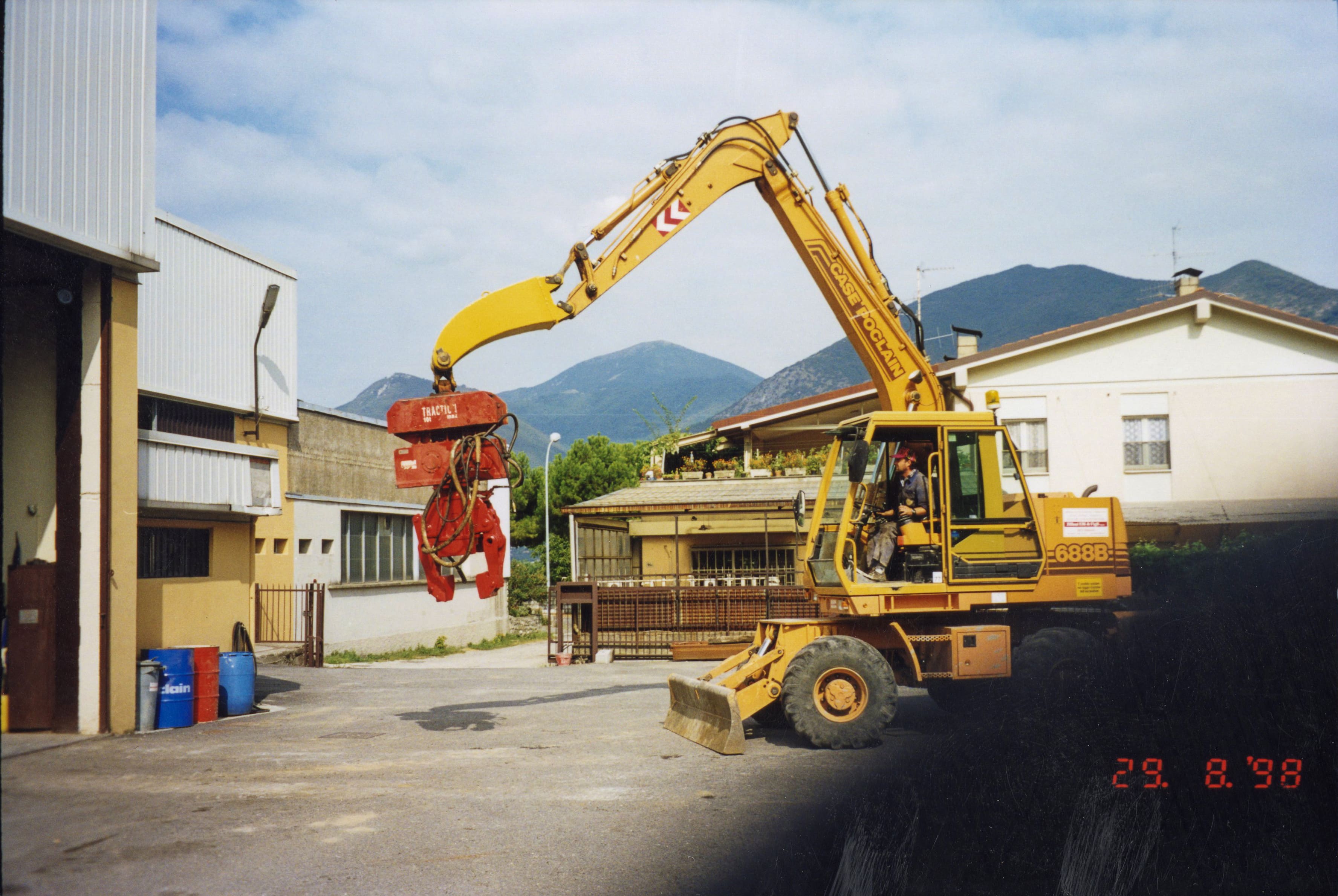
The future of Poclain: a legacy that lives on
Although the Poclain brand is no longer marketed, its legacy lives on in the historic models still in operation and in the spare parts that allow these machines to continue working. Passion for Poclains is not just nostalgia: it is recognition of a brand that has marked the history of construction equipment in France and around the world.
If you have a Poclain or CASE Poclain and want to breathe new life into it, contact us: your excavator could be the next one back in operation!
